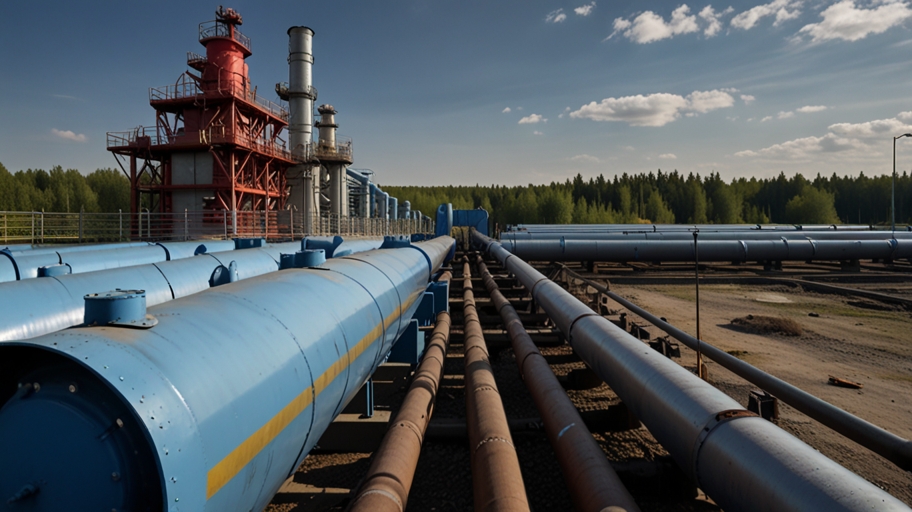The western banks that have branches in Russia are silently making sure that the natural gas supply of Russia to Europe is kept going, by going through an intricate maze of sanctions. These agencies help pay for gas purchases, keeping a vital energy supply chain amidst geopolitical tension.
Sanctions Target Gazprombank, Banks Adapt
The recent American sanctions imposed on Gazprombank, which plays a significant role in the gas trade in Russia, have made European customers look towards finding alternatives. Banks such as Raiffeisen Bank International have intervened using their operations in Russia to make the payments. As a result, gas continues to be delivered to the countries that have yet to abandon the Russian pipelines.
Geopolitical Tensions Shape Energy Trade
The ongoing war in Ukraine has increased the focus on European energy relations with Russia. As much as the EU wants to eliminate Russian gas by 2027, current energy demands have left some countries vulnerable. The banks with units in Russia play a central role in maintaining such a delicate balance.
The Position of Raiffeisen in Gas Transactions
Raiffeisen Bank International, among others, has become a choke point in gas payments. Its subsidiary in Russia conducts transactions on behalf of European customers to evade sanctions imposed on Gazprombank. This position highlights the important role that the bank plays in Europe’s energy security as political pressures increase.
EU Presses to Phase Out Russian Gas Imports
The European Union is enacting laws to eliminate Russian energy imports by 2027. The transition is not smooth, though, with Hungary and Slovakia among the countries that continue to depend on Russian gas. The participation of Western banks will give these countries time to diversify their energy supply.
Turkey Increasingly Becomes a Pipeline State
An increasingly large portion of Russian gas going to Europe is going through the TurkStream pipeline in Turkey. Western banks are used to process these transactions, with Turkey emerging as a very important node. The move underlines the changing geography of the European gas supply, and banks are at the center to ensure stability.
European Buyers’ Economic Stakes
It is an economic imperative that European companies obtain gas. Banks with units in Russia offer a way around sanctions to maintain a continuous supply. Although this arrangement is controversial, it avoids cases of energy shortages, which can paralyze industries and homes on the continent.
Ethical Dilemmas of Western Banks
Western banks find ethical dilemmas in operating in Russia. Critics say they indirectly facilitate Russia’s war efforts, whereas defenders say they are fulfilling Russia’s immediate energy needs. This tension puts banks in a moral and political crossfire and makes them walk a tight rope.
Russia’s Gas Strategy Shifts East
Europe is trying to decrease dependence on Russian gas, and Moscow is looking at markets such as China. The suggested Power of Siberia 2 pipeline is supposed to replace European revenue losses. As Russia shifts and reinvents global energy balances, Western banks’ existing position can be reduced.
EU Riven by Internal Division
The EU countries are not unanimous about the prohibition of Russian gas. Names such as France and Belgium are among the key LNG purchasers who want guarantees before committing to a phase-out in 2027. The role of Western banks in processing gas payments is revealing these fault lines, which makes it challenging to have a coherent position of the EU.
Banks Manoeuvre Regulatory Risks
Western banks are under scrutiny over their activities in Russia. The EU’s threat to impose sanctions on banks involved in energy trade with Russia may cut off gas supplies. These organizations have to reconcile compliance with energy needs, and they work in a high-stakes regulatory environment.
Energy Security of the Future of Europe
Diversification of suppliers and investment in renewables are the key to Europe’s energy future. In the meantime, the banks that have units in Russia are still critical. Their significance highlights the problem of reconciling energy security and geopolitical ambitions, and Europe is going through a bumpy transition.
